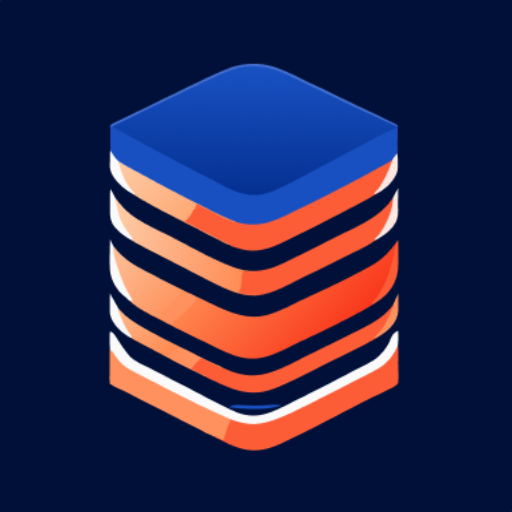Data Extractor - JSON-structured data extraction tool
AI-powered structured data extraction
Extract names and dates from this text.
Here's a document, identify key fields.
Turn this uploaded file into structured JSON.
Show me JSON for the prices and items here.
Related Tools
Load More
URL Data Scraper
Rapidly get text, PDF, or images from any url.

Site Harvester
Harvests or scrapes data from sites into specific formats or files

PDF Data Extract
Rapidly transform PDFs into structured data for easy analysis and decision-making.

Table Extractor
Extract values from PDF or images into CSV files. If there are several tables in the file, precise exactly which table (table number, title and page) you want to extract data from.

Data Extractor and Visualization Tool
Introducing our Data Extractor and Visualization Tool, designed for effortless data extraction from various text sources. With automatic parsing, flexible output options, and compatibility with popular data formats, you can create custom tables, graphs or

Table Extractor Pro
Extracts and presents data from image-based tables, up to 20 rows per table. Please upload the pictures and press Enter Key.
20.0 / 5 (200 votes)
Introduction to Data Extractor - JSON
Data Extractor - JSON is a specialized tool designed to process and extract structured data from various types of text and documents, converting them into JSON format. This tool is built to analyze provided content, identify relevant fields, and structure the information into JSON without requiring extensive user input. The primary purpose is to streamline data extraction tasks, making it easier to handle large volumes of unstructured data by converting them into a standardized, machine-readable format. For example, if a user provides a document with a list of customer details, Data Extractor - JSON can identify fields like name, address, and phone number, and then output this data in a structured JSON format.

Main Functions of Data Extractor - JSON
Structured Data Extraction
Example
Extracting customer information from a series of emails.
Scenario
A business receives numerous emails daily containing customer inquiries. Data Extractor - JSON can scan these emails, identify key information such as customer name, email address, inquiry details, and convert this information into a structured JSON format for easy processing and storage.
Field Suggestion and Identification
Example
Analyzing a research paper to identify sections like abstract, methodology, and results.
Scenario
Researchers often need to extract specific sections from academic papers for meta-analysis. Data Extractor - JSON can process these papers and automatically identify and extract sections like the abstract, methodology, results, and conclusions, providing a structured summary in JSON format.
Data Transformation
Example
Converting product specifications from a PDF catalog into a database-friendly JSON format.
Scenario
E-commerce companies frequently need to update their product databases with new specifications. By using Data Extractor - JSON, they can convert product details from PDF catalogs directly into JSON, facilitating seamless integration into their existing databases.
Ideal Users of Data Extractor - JSON
Businesses and Enterprises
Businesses dealing with large volumes of unstructured data can greatly benefit from Data Extractor - JSON. For instance, customer support teams can use it to automate the extraction of relevant information from customer interactions, improving efficiency and accuracy in data handling.
Researchers and Academics
Researchers who need to extract and organize data from various academic sources can use this tool to simplify their data collection process. By automatically converting research articles, papers, and study results into structured JSON, they can save time and reduce manual effort.

Guidelines for Using Data Extractor - JSON
Visit aichatonline.org for a free trial without login, also no need for ChatGPT Plus.
Start your journey by accessing the platform without any hassle or financial commitment.
Upload or input your text/document.
Provide the text or document from which you need to extract structured data.
Select the desired fields for extraction.
Choose specific fields you want to extract based on your analysis of the content.
Initiate the extraction process.
Run the extraction tool to process the text and generate the structured data in JSON format.
Review and download the JSON output.
Examine the extracted data for accuracy and completeness, then download the JSON file for your use.
Try other advanced and practical GPTs
TaxGPT
AI-driven personal tax insights

SightGo
AI-powered street view images instantly.

CSV Export
AI-powered CSV export made easy

Ninja Developer
AI-powered solutions for developers.

Logo Designer
AI-Powered Logo Design Made Simple

SQL Expert
AI-Powered SQL Optimization Tool

Django Dev Helper
AI-powered Django development assistance

Picture Guessing Game Master
Engage and Challenge with AI-Powered Image Guessing

Where to eat?
AI-powered personalized restaurant guide.

Market Maverick GPT
AI-Powered Market Analysis and Investment Insights

Persona Shaper
Transform your photos into chibi cartoons with AI-powered Persona Shaper.

学习教练-批判性思维教练 v231123
AI-powered critical thinking coach.

- Research
- Automation
- Business
- Content
- Analytics
Detailed Q&A about Data Extractor - JSON
What is Data Extractor - JSON?
Data Extractor - JSON is a tool designed to extract structured data from text and documents, presenting it in a JSON format for easy use and analysis.
How does Data Extractor - JSON handle different types of documents?
The tool can process various document types, including text files, PDFs, and web content, efficiently converting them into structured JSON data.
Can Data Extractor - JSON identify custom fields?
Yes, users can specify custom fields based on their needs, and the tool will extract data accordingly, providing flexibility in data extraction.
Is there any coding required to use Data Extractor - JSON?
No, the tool is user-friendly and does not require any coding skills. Users can easily interact with the interface to perform data extraction.
What are the common use cases for Data Extractor - JSON?
Common use cases include academic research, data analysis, content categorization, business intelligence, and automated data entry, among others.